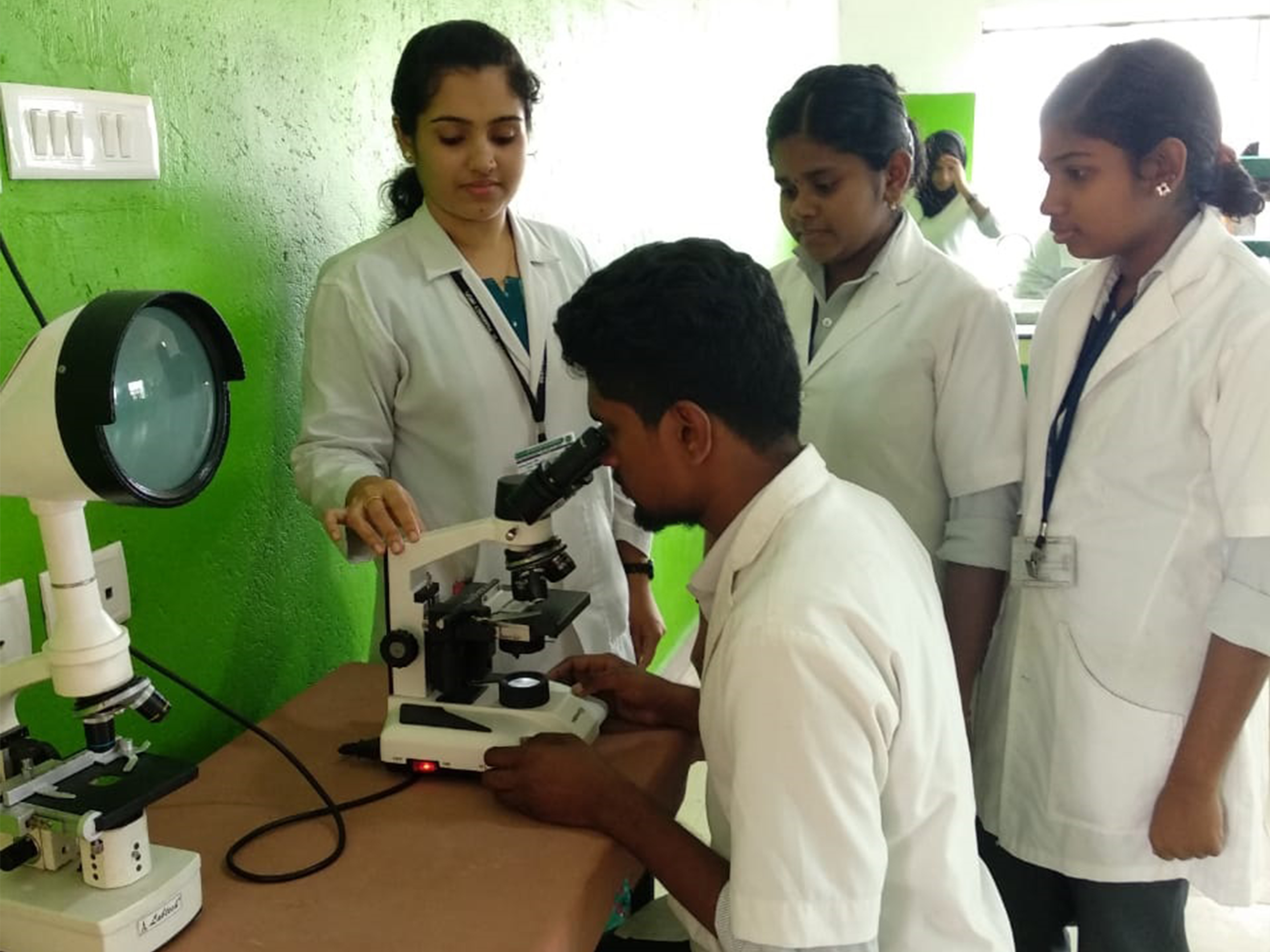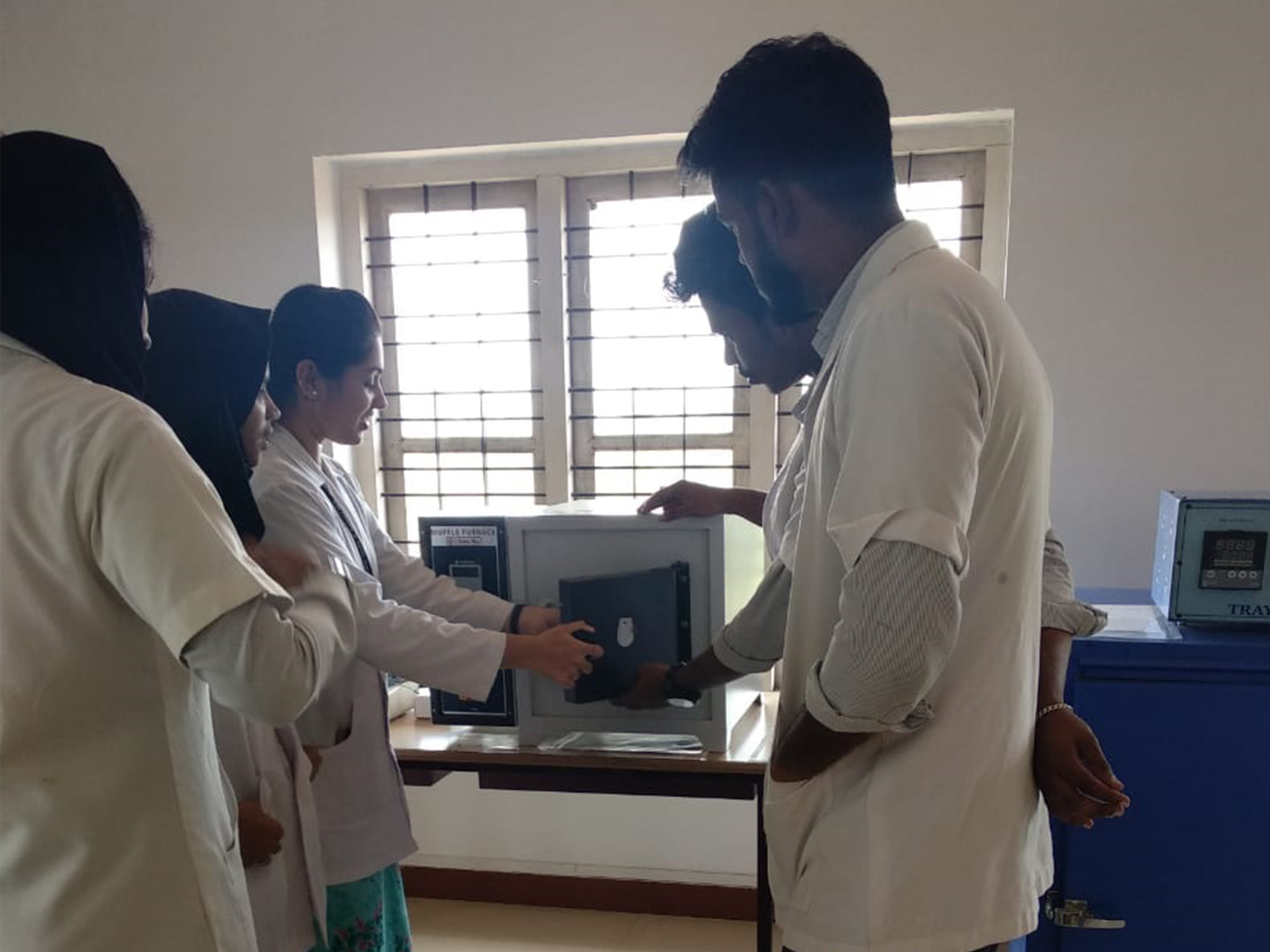Introduction
Department of Pharmacognosy is an interdisciplinary branch involving a broad spectrum of biological and socio-scientific topics, including botany, ethno botany, marine biology, herbal medicine, phytochemistry, plant biotechnology –
tissue culture, production of secondary metabolites and development of herbal formulations. The department deals with medicines derived from natural sources and it involves the study of the physical, chemical, biochemical and biological
properties of molecules of natural origin, obtained from plants, animals, minerals and marine sources so as to ascertain their potential as lead drug molecules.
Vision
- To train students to face the global challenges in herbal drug research and make them reach out to newer technology with innovative techniques
- To explore the potential of natural resource as pharmaceuticals, neutraceuticals & cosmeceuticals
- Achieving a leading position for research in the field of natural products
Mission
The department of Pharmacognosy and Phytochemistry completely dedicated to:
- Providing excellence in education, research and public services in the disciplines of pharmacognosy and natural product chemistry
- Meeting the current and future needs of alternative medicine and homeopathy.
- Defining the direction and scope of herbal drug therapy through continuous and innovative research
- Promoting pharmaceutical care locally, nationally and internationally by securing a supply of safe and efficacious natural medicines
- Searching for local natural resources as remedies for the management of endemic diseases
- Developing suitable extraction and isolation (with QA methods) for natural products used as pharmaceuticals, dietary supplements and cosmetics.
Objectives
The department of Pharmacognosy focuses on to provide the knowledge about the drugs related to their origin, cultivation, collection and preparation for the market purpose. Their characters, therapeutic effects of the active
constituents, chemical tests to ascertain their potential drug molecules, uses in various systems of medical treatment, substitutes and adulterants are also taught with following objectives
- To enrich the students by providing knowledge of modern techniques for isolation, screening & utilization of phytochemicals
- To update the skills of students in identifying & characterizing the constituents of natural resources.
- To encourage students for discovering active moieties from natural sources by extraction techniques and it’s isolation & purification done by various analytical techniques
- Structural elucidation of bioactive molecules by instrumental techniques
- Development & standardization of herbal formulations
- To highlight the importance of drug from natural origin in the treatment of disease
- Also it facilitates the techniques that can save the life of endangered plants by tissue culture techniques
- Can learn and understand how the herbs influence our physiology and are used against various diseases and disorders.
- More demand for the herbals in industries to make various herbal formulations since the world is relying behind the herbal treatment.
Faculties Table
| Department of Pharmacognosy |
| Sl No |
Name |
Designation |
| 1 |
Dr. Sundarananthavalli |
Professor & HOD |
| 2 |
Prof. Rajeev V.R |
Professor
|
| 3 |
Mrs. Sreesha N Nair |
Associate Professor
|
| 4 |
Ms.Dhanya A.S |
Senior Lecturer
|
Laboratory Details
Well experienced highly qualified talented faculties are handling this subject to train the budding Pharma communities to develop their skills to meet the demand of Pharmaceutical Industries. The Pharmacognosy department in our college
is well-equipped with the entire herbal specimens related to the syllabi of the students. We also have a Medicinal Plant Garden which is enriched with a variety of medicinal herbs. It was conceived as part of the pharmacy curriculum to
display live medicinal plants to students. The garden remains a visually informative and aesthetically appealing part of the campus..
- Pharmacognosy laboratory is fully equipped with all the latest instruments for effective teaching.
It provides morphological and microscopical studies of cells and tissues of different parts of the plants like root, stem, leaf, flower, fruit and seeds by
- It also provides esteemed guidelines to the students regarding Phytochemical tests, separation and analysis of active constituents through various techniques like
- More than sixty plants are grown and maintained in Medical garden. Various herbarium specimens are kept in herbal museum.
Major equipments
- Binocular microscope
- Projecting microscope
- Compound microscope
- Thin layer chromatography
- Column chromatography
- Paper chromatography
- Clevenger’s apparatus
- Soxhlet apparatus
- Hand microtome
- Camera lucida
- Micrometers
- Thermostatic Bath
- Oven
- Muffle furnace
COURSE OUTCOME
The Students are focused on identification of crude drugs by macroscopical and microscopical methods in herbal medicines. They will learn and get experienced about:
- Herbs and their Science.
- Classification of Medicinal Plants & Phytochemistry of active moieties
- Pharmacology, Toxicity, Formulations and Preparations of Herbal Medicines.
- How herbs influence our physiology and can be helpful against several disorders.
- The recognition of medicinal plants, identification of adulteration and Contamination.
- Ethnobotany & Ethnopharmacology in drug discovery process.
- DNA Finger printing.
- Medicinal plants and derivatives for use in herbal, food and cosmetic products,
CAREER OUTCOME
- Pharmacognosy and phytochemistry department provides an ample scope in the discovery of new drugs from natural source by taking advantages of traditional plants. The students acquiring the knowledge required for the placement in Herbal Drug industry.
- A Pharmacognosy graduates can also have diverse job opportunities In academia , public sectors & government agencies such as the National Institutes of Health and the Food and Drug Administration hire pharmacognosists . They can also work in the private sector as researchers and developers in the pharmaceutical, biomedical and biotechnology companies. The field of alternative medicine is also open to pharmacognosists. The Ministry of AYUSH has been set up to propagate natural systems of medicine and health care.


CURRENT RESEARCH STATUS AND PERSPECTIVES
- The department carryout research work related to extraction, isolation and characterization of phytoconstituents and testing the biological activities of traditional medicinal plants.
- The department also involved in the formulation and standardization of polyherbal formulations as a part of new drug development programme.



